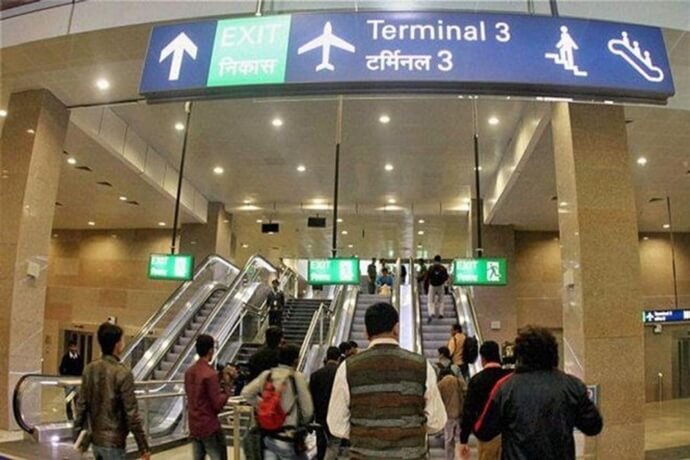India’s busiest air travel hub, Delhi International Airport took the pandemic as an opportunity to implement world-class innovations for an enhanced passenger experience in the days to come. Though hit by a drastic fall in the volume of passenger traffic due to the continued suspension of normal international flights, Delhi IGI Airport has not only survived the crisis but also turned over a new leaf. Since the launch of Vande Bharat Mission, Delhi Airport has efficiently handled operations for air bubble flights, both inbound and outbound.
Equipped with e-gates, Indira Gandhi International Airport is all set to automate immigration clearance both for outbound and inbound travelers. In December 2020, the airport launched a pilot program for certain passengers to experience fast immigration clearance in an absolutely contactless manner given social distancing is a need of the hour. Like Hyderabad’s Rajiv Gandhi Airport, Delhi IGI Airport has made most of the process contactless that an international traveler goes through before departure or after arrival.

Picture Credit: Outlook India | IGI Airport
How Delhi Airport’s e-gates work for faster immigration clearance
Delhi International Airport’s e-gates will facilitate speedy identity and document verification for travelers without human intervention. This technological innovation is expected to eliminate the hassles of boarding long-haul international flights especially when the immigration area is staffed with limited manpower. This is part of Delhi IGI Airport’s Trusted Travellers Program (TTP) for international passengers.
Designed on the lines of Global Entry Program in the USA, Delhi Airport’s TTP ensures hassle-free airport experience for low-risk travelers who are eligible for pre-approved immigration clearance. With the Trusted Travellers Program integrated to four e-gates in the departure terminal area, Delhi Airport requires passengers to scan their passports and boarding passes.
On successful scanning, a camera attached to the scanner at the e-gates will click a picture of the passenger’s face, and the picture will be matched with a database of blacklisted travelers to check within seconds if the passenger is prohibited from traveling abroad. Passengers will also submit a biometric scan of their fingerprints to the automated immigration clearance system. On successful clearance, the e-gates will open for them to proceed towards boarding.
Similar e-gates will be installed for fast, automated, contactless immigration clearance for international arrivals at Indira Gandhi International Airport. On average, the automated process will take half of the time that a passenger spends at the counters manned by immigration officials at the country’s biggest and busiest airport. The current process takes about 1.5 minutes per passenger, excluding the time spent in the queue on any given day. Initially, the airport staff will guide passengers through the new process.
Also Check: Delhi Airport’s Upcoming Inter-terminal Air Train
Delhi International Airport’s e-gates will be fully operational in a phased manner. In the first phase, only government officials and foreign dignitaries will be able to pass through the e-gates. The second phase will make the new facility available for Indian passengers. In the third phase, all foreign travelers will have a fast immigration clearance experience. On successful completion of the 3-month trial period, the first phase of the initiative will be operational in March 2021.
Delhi IGI Airport’s New Passenger Tracking System
Following a successful trial, Delhi International Airport’s Terminal 3 has got a unique passenger tracking system for efficient management of passenger flow in compliance with social distancing measures. Delhi Airport’s Xovis passenger tracking system is a queue management system that works through installation of screens for display of live waiting time at such critical areas as check-in, securing screening, and boarding.
The mechanism of Delhi Airport’s passenger tracking system also includes ceiling-mounted sensors that scan passenger throughput at any given point of time and transmit the data to the airport operator through an intuitive dashboard. The dashboard helps the airport operator identify crowded zones and bottlenecks in real time, thereby ensuring better management of passenger flow in adherence to the social distancing protocol.





